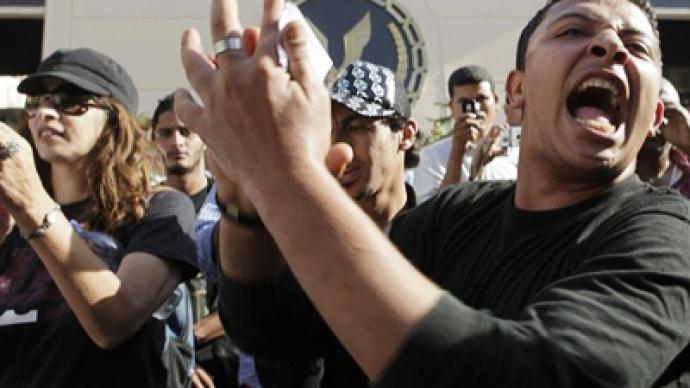IMF loans to Egypt and Tunisia may be devastating - journalist

Egypt's interim government has accepted a $3 billion loan from the International Monetary Fund to help relaunch the country's economy. However, such loans may not be for the good of the Egyptian people, believes financial journalist Austin Mackell.
In one of his articles Mackell says that "the IMF is depicted as the rich uncle saving wayward children, but the proposed loans for Egypt and Tunisia could be devastating." The IMF repeatedly came under criticism for praising autocratic North African governments, and now that they are toppling, the IMF is giving money to the other side.“It’s likely that the loans will have the same conditions attached to them that the previous IMF loans to Egypt and Tunisia had, which meant massive cuts to the public sector and privatizations,” said Mackell in an interview to RT.Mackell believes that creating a business-friendly environment is one of the aims of the IMF.“What that normally means is an environment that’s unfriendly to the rights of local workers and to small businesses in the economy”.Both in Tunisia and in Egypt the IMF has signed loan agreements with the transitional governments, which, as Mackell pointed out, are primarily composed of figures of the old regime. Therefore, only a small elite – which was doing well under the old governments as well – will benefit from the loans, along with the international banks. The money is likely to stay in “the pockets of the fat cats,” and the economic growth will not affect common people that much. “There was actually strong growth in Egypt and Tunisia for the last decade or so before the revolutions, which, of course, the IMF and the World Bank praised, but this was jobless growth, it didn’t help people on the ground,” Mackell told RT.Stephen Lendman, radio host and blogger, believes that accepting an IMF loan can really get a country into big trouble.“An IMF loan comes with very, very dangerous strains,” he said. “The reason that people in Greece and people in Spain are protesting in the streets against these neo-liberal policies that come with IMF loans is it literally hands the sovereignty of these governments over to Western bankers so they can strip countries of their assets, of their material wealth, to exploit their people. The more money these countries take from the IMF, the worse trouble they get in.”














